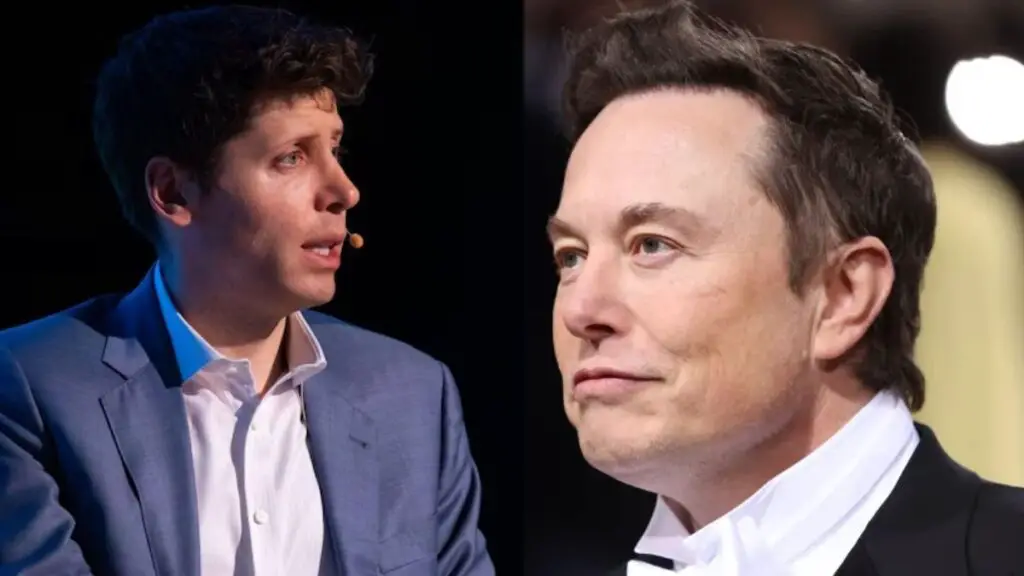Related Posts
The founder of SpaceX and one of the world’s wealthiest entrepreneurs, Elon Musk, filed a lawsuit against OpenAI, a startup specializing in artificial intelligence, and its CEO, Sam Altman. According to Musk, they have disregarded the goal of helping humanity and instead only seek to gain financial benefits. In his lawsuit filed in San Francisco’s Superior Court, Musk asserts that he had a deal with Altman and President Greg Brockman that the nonprofit AI company would continue to develop technology for the benefit of all people.

Accusations of Code Misuse
At the heart of Musk’s legal proceedings lies a critical claim: In compliance with OpenAI’s promise to continue the open-source AI code, everyone can use it. According to Musk, this idea is crucial to the establishment of OpenAI, a notion that their discoveries would be public to the broader scientific community for further research, new developments, and the overall progress of humanity.
However, in the lawsuit, Musk paints a picture of a company that veered away from this commitment. He alleges that OpenAI, through its progressively close relationship with tech giant Microsoft, has not only deviated from but outright betrayed its original mission. According to Musk, this partnership has led to a transformation within OpenAI, turning it into what he describes as a ‘closed-source subsidiary’ of Microsoft.
AGI and Profit Allegations
The lawsuit further delves into Artificial General Intelligence (AGI). AGI is a form of artificial intelligence that aspires to perform any intellectual task a human can do. Unlike most AI we often see today, it’s not restricted to a single narrow task. Instead, it can hop over the top and perform better than a human for most economically important jobs.
Musk’s lawsuit has sparked questions about the new OpenAI’s governance regarding the development of artificial general intelligence. The charges indicate that OpenAI is developing and improving AGI to increase Microsoft’s profitability. Such counter-commitments mark a sharp contrast with the missions they initially had.
In light of these deviations, Musk’s lawsuit stands on several violations of law, which are breach of contract and fiduciary duty and unfair business practices. He seeks legal remedies for these violations and requires an injunction that will make it impossible for any party, especially Microsoft, to utilize OpenAI’s technology for their own benefit.
Musk’s Historical Role in OpenAI

Elon Musk’s association with OpenAI isn’t merely that of an observer or a commentator. The SpaceX and Tesla CEO played a significant role in the inception and early development of OpenAI.
Musk was not only just a board member of OpenAI in 2015 but also its co-chair, sharing the leadership role with Sam Altman. This position allowed him to help shape the strategic direction of the company and its mission to create AI technology that would benefit humanity.
Also, Musk played a significant role in OpenAI finance. He invested as much as ten million dollars into the nonprofit research lab, showing his dedication and devotion to the cause. Georgetown University’s law professor Anupam Chander observes that not only is Musk’s lawsuit itself a statement of his role in OpenAI, but this also applies to the entire generative AI technology. This is a reminder for every one of Musk’s ardent and lasting connection to the company and the wider AI community.
OpenAI’s Alleged Shift to For-Profit
The split of Elon Musk from the board of directors at the beginning of 2018 created changes in his relation to OpenAI. As a result of Musk’s intention to attract AI specialists for the electric car maker Tesla, the decision was to resolve future conflicts of interest. Musk criticized the organization’s direction but still contributed money to the nonprofit, showing that he was fully behind OpenAI’s objectives even after stepping down from the board.
In the same year, OpenAI underwent major internal tremors. The company transformed into a for-profit organization and most of its employees were transferred to this new division. However, this departure was against OpenAI’s original commitment to act as a nonprofit.
In 2019, Microsoft invested $1 billion in OpenAI and secured exclusive access to its AI models the following year. This partnership was the turning point for the organization, evidencing its pivot from a public welfare emphasis towards commercial interests as the major concern. These accusations and the subsequent change in Musk’s approach ultimately comprise a considerable portion of the battle he wages with OpenAI and its CEO, Sam Altman.

